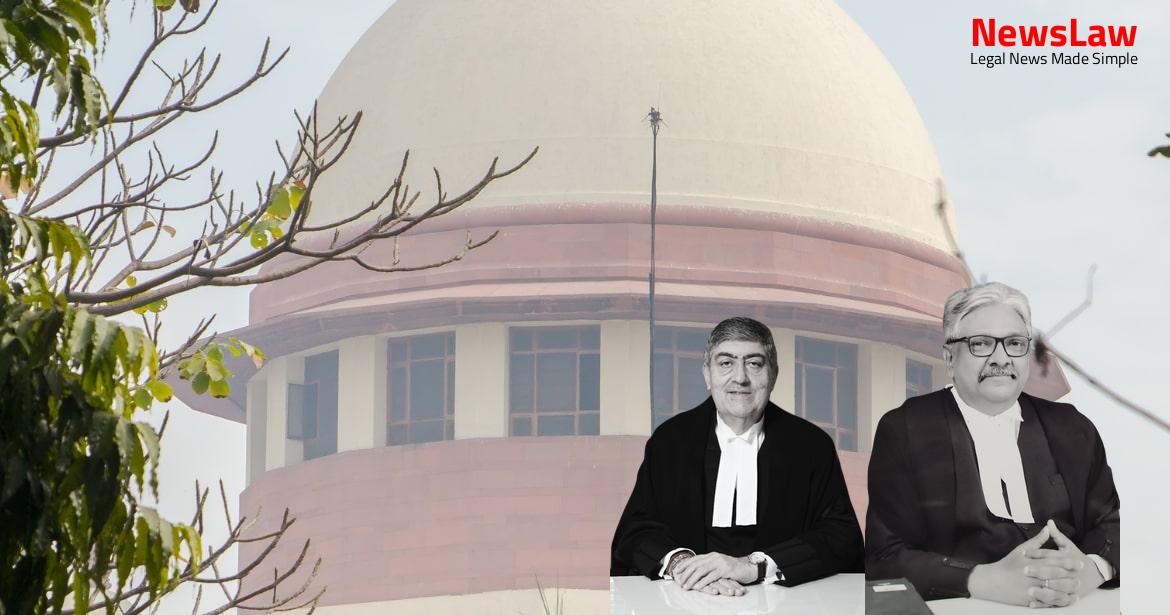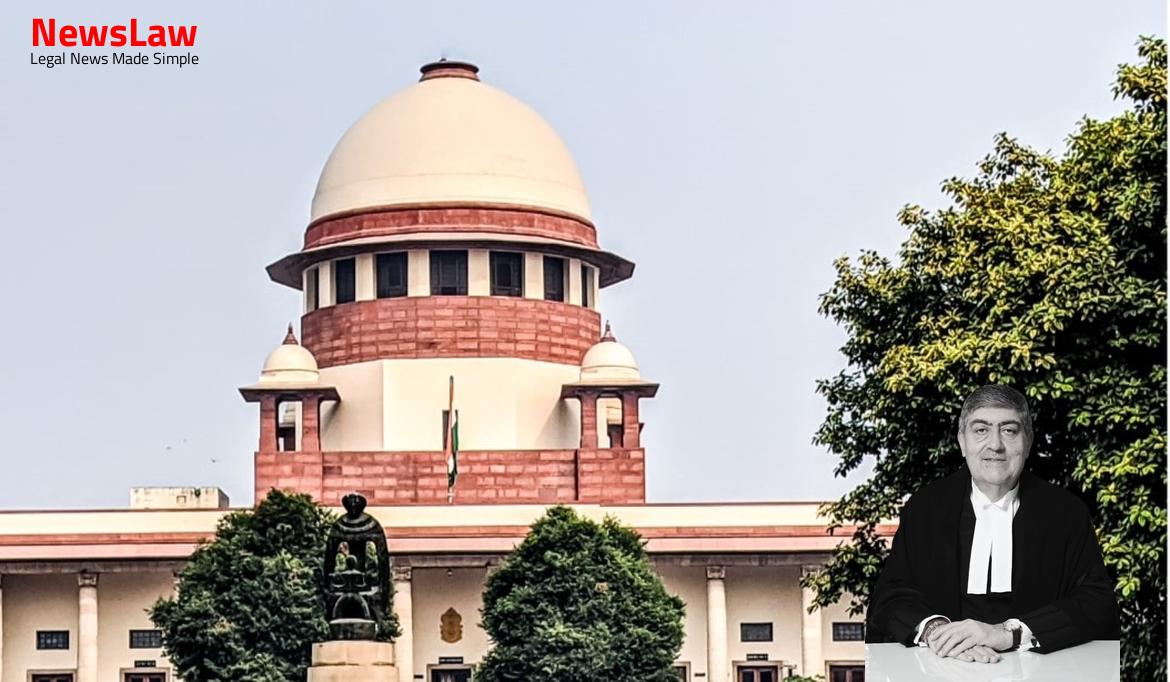In a recent legal case, the court conducted a thorough analysis of a complex situation involving allegations of rape based on a false promise to marry. The dispute stemmed from inconsistencies in the complainant’s claims regarding divorce dates and the nature of the relationship. The court scrutinized the evidence and arguments presented by both parties to determine if the FIR should be quashed. Let’s explore the legal nuances and implications of this case.
Arguments
- The appellant filed a petition under Section 482 Cr.P.C. to quash the FIR against him.
- The FIR was filed by the second respondent/complainant and is considered an abuse of legal process.
- The appellant’s counsel argued that the FIR is unjust and should be dismissed.
- The appellant did not promise to marry the complainant at any stage.
- The complainant and the appellant had consensual physical relations while living in the same house.
- The complainant fell into a trap due to the disturbed state of her matrimonial life.
- A marriage was solemnized in a temple in January 2019 between the complainant and the appellant.
- There are discrepancies in the complaint filed and the statement recorded under Section 164 Cr.P.C.
- The relations between the parties were consensual based on the evidence.
- The complainant was living with her parents due to a dispute with her previous husband.
- The complainant had a grown-up daughter aged 15 living with her at the time.
- The complainant claimed to have divorced on 10.12.2018 and married the appellant in January 2019, however, the divorce decree was only passed on 13.01.2021.
- The initiation of proceedings against the appellant is deemed an abuse of the legal process and should be quashed.
Also Read: Legal Analysis of Will Dispute
Analysis
- The complainant initially claimed that the divorce from her earlier marriage took place on 10.12.2018, but later changed her stance during the Section 164 Cr.P.C. statement.
- The parties were in a relationship since 2017, contrary to the complainant’s later claims.
- The complainant got pregnant from the accused and visited his native place where she found out he was married with children, yet continued the relationship.
- The divorce decree was passed only on 13.01.2021, well after the relations between the parties started.
- The complainant claimed that the appellant treated her as his wife and they lived together.
- The complainant had divorced her husband by mutual consent in 2014, leaving her three children with him.
- Despite the appellant’s promises, he did not marry the complainant, causing the dispute.
- The complainant filed the FIR on 11.12.2020, alleging rape on the false promise to marry, supported by her statement under Section 164 Cr.P.C.
- A clear case of rape on false promise to marry was made out against the appellant based on the mentioned facts.
- The complainant alleged that even after marriage in a temple in January 2019, the appellant did not fulfill his promise of marriage.
- There were inconsistencies in the complainant’s version regarding the date of divorce, which was contradicted by the divorce decree judgment.
- Despite being a married woman with three children, the complainant’s actions indicated she understood the consequences of her decisions in the relationship with the appellant.
Also Read: Prioritizing Child Welfare in Custody Cases
Case Title: VINOD GUPTA Vs. THE STATE OF MADHYA PRADESH (2024 INSC 181)
Case Number: Crl.A. No.-003431-003431 / 2023



